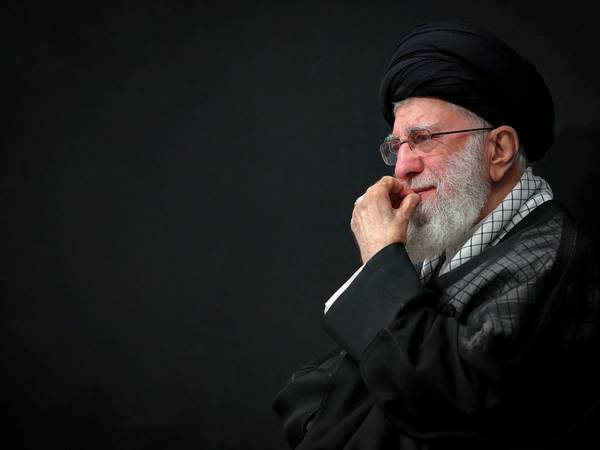Signs of disobedience among Iranian hardliners towards Supreme Leader Ali Khamenei have emerged shortly after an election that brought numerous new figures to the political forefront.
This can also signal Khamenei's weakness in controlling the ultraconservatives he helped bring to power in an election on March 1 with the lowest turnout in the Islamic Republic's history.
The latest indications of disobedience emerged within hours of Khamenei's advice and orders to hardliners to avoid disgraceful confrontations with each other.
Hamid Rasaei, a former hardliner lawmaker with a questionable reputation, who was disqualified to run in the 2020 parliamentary election, got the go ahead to run this year and won a seat at the parliament (Majles). Within a few days of his election, Rasaei attacked the incumbent Majles Speaker Mohammad Bagher Ghalibaf and his predecessor Gholam-Ali Haddad Adel and called for Ghalibaf's removal from his post.
Both the incumbent and former speakers happen to be relatives of Khamenei. Iranian pundits predicted that granting too much leverage to the ultraconservatives would one day lead them to turn against the leader. It took only a few days for this prediction to come true.
Rasaei wrote in a tweet Friday evening that IRGC-linked Fars News Agency has called for rejecting his credentials as a member of parliament. Rasaei added defiantly that the IRGC agency's threat does not scare him.
As if that was not enough to signal the disobedience that was swiftly responded to by an IRGC media outlet, hours after Khamenei's speech on Thursday, Rasaei repeated his accusations against Ghalibaf once on X (previously known as Twitter) and again on live state television.
Rasaei tweeted that Ghalibaf should be removed from his post as Majles Speaker because he has won only around 400,000 votes in the election while he had won more than 1,200,000 votes in 2020. The decline in Ghalibaf's popularity meant that a major change should occur in the leadership of the parliament.
On prime-time Thursday evening, Rasaei repeated that in a live program on the state television and charged that Tasnim News Agency and Javan Newspaper, two of the media outlets of Iran's revolutionary Guards (IRGC), which he said support Ghalibaf, have attacked him subsequently.
Rasaei also claimed that Khamenei's advice to newly elected lawmakers to avoid conflicts and controversies did not address him. This comes while Tasnim News Agency made it clear on its official X account that Rasaei's statements on state TV were clearly in contravention of Khamenei's remarks.
However, the state TV's deputy chief for political affairs, Alireza Khodabakhshi, was fired the day after, possibly for allowing Rasaei to utter his provocative remarks on air. Khodabakhshi is a an ultraconservative Paydari figure.
In another sign of disobedience to Khamenei, Hassan Bayadi, one of the founders of Abadgaran, a political organization that gave rise to Paydari Party and supported former President Mahmoud Ahmadinejad and is currently a staunch supporter of the Raisi administration, accused the older generation of lawmakers of not knowing what to say and what not to say.
The Iranian Labor News Agency (ILNA) quoted Bayadi as using an expression Haddad Adel had used to describe the new ultraconservatives and older politicians. Haddad Adel had likened older conservatives such as Ghalibaf to big trees and the new ultraconservatives as tiny plants. Bayadi said in the interview with ILNA: "May God help us! The totalitarian big trees at the Parliament do not know what to say and what not to say."
Bayadi, who has been so far close to Khamenei's office, also made unforgivable mistakes in that statement: First he attacked Khamenei's relatives, and second, he did not abide by Khamenei's advice to avoid controversies and conflicts among insiders.
The occurrence of two such cases in one day, make it difficult for Khamenei to re-establish his authority in the eyes of his devoted followers who used to see him as an infallible God-like father figure. Almost everyone has seen the signs of aging and illness in Khamenei's face and posture, despite his attempt to walk without a walking stick to prove his fitness.
As conservative activist and analyst Abdolrahim Ansari pointed out, Khamenei did not ask ordinary social media activists to avoid infighting and controversy. He was addressed candidates who have been elected with his blessing without the right qualifications in an engineered election.
